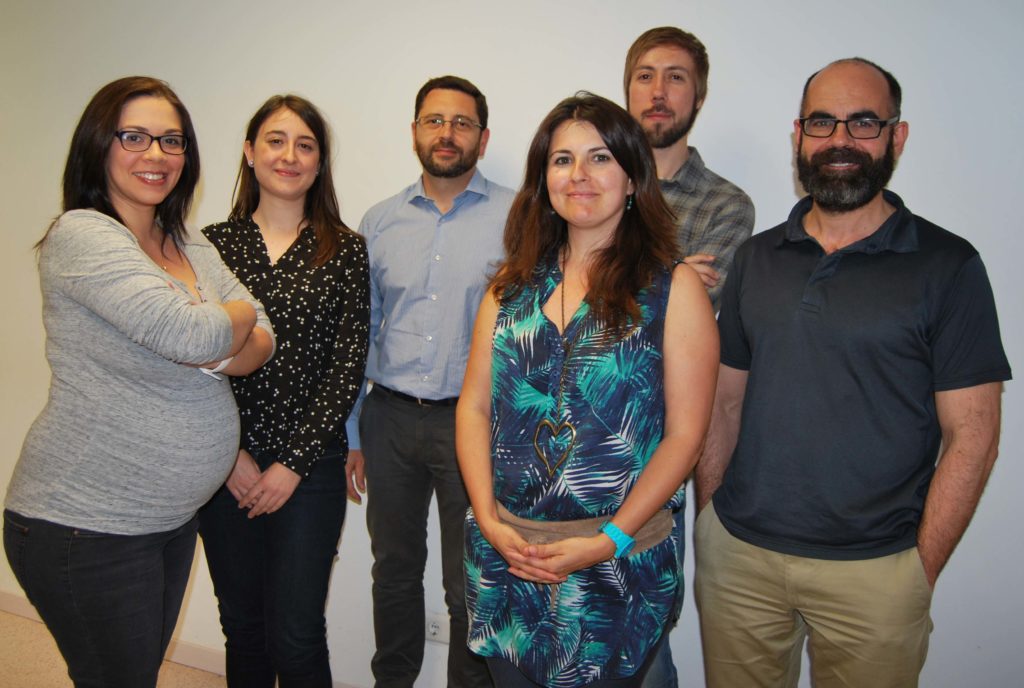Researchers of the Chromatin and Disease Group from the Bellvitge Biomedical Research Institute (IDIBELL) and La Paz Hospital (IDIPAZ) have identified epigenetic alterations in Common Variable Immunodeficiency (CVID), the most common primary immunodeficiency, using as a starting point genetically identical monozygotic twins discordant for the disease.
CVID is a disorder characterized by low levels of antibodies (serum immunoglobulins) and increased susceptibility to infections. Most patients with CVID are diagnosed initially after suffering recurrent infections that involve ears, sinuses, nose, bronchi and lungs. When the lung infections are severe and occur repeatedly, can cause permanent damage to the bronchi and become chronically affected.
The exact cause of low levels of serum immunoglobulins is not known. Given the heterogenous nature of CVID, there is not a clear pattern of inheritance, although in recent years geneticists have described mutations in several genes related to the biology of lymphocytes in patients with CVID. Still, for several patients there are no identified mutations and it is thought that other mechanisms also determine the onset of the disease; in fact, there are examples of genetically identical twins, which are discordant for the manifestation of this disease.
In this study, published this week in the journal Nature Communications, and directed by Drs. Esteban Ballestar (IDIBELL) and Eduardo Lopez-Granados (IDIPAZ), the comparison of epigenetic marks in B cells of a pair of identical twins, discordant for CVID, has allowed them to identify the existence of epigenetic alterations in the twin with the immunodeficiency that are not present in the healthy twin. In particular, they observed higher DNA methylation levels in the twin with CVID. DNA methylation is related to the ability of cells to allow their genes to be expressed. This analysis allowed the identification of a group of genes important for the proper functioning of B lymphocytes which were more methylated in the CVID twin. Subsequently, the same genes were investigated in a cohort of individuals with CVID, and compared with a series of healthy individuals. The analysis of methylation of these genes in cells in different stages of maturation, showed that patients with CVID have partially lost the ability of demethylating those genes during the process of generating mature lymphocytes. These results indicate that patients not only produce less CVID memory B cells (the mature form which produces antibodies) but these cells are altered and have not completed properly their maturation.
The results of this study are the first evidence of such epigenetic alterations in the field of primary immunodeficiencies and open a door to future research avenues for the diagnosis and treatment of patients with CVID.
This study has been completed with the participation of researchers and clinicians at the Karolinska Institut in Stockholm and the Son Espases Hospital of Palma de Mallorca.
Virginia C. Rodríguez-Cortez, Lucia del Pino-Molina, Javier Rodríguez-Ubreva, Laura Ciudad, David Gómez-Cabrero, Carlos Company, José M. Urquiza, Jesper Tegnér, Carlos Rodríguez-Gallego, Eduardo López-Granados and Esteban Ballestar (2015) Monozygotic Twins Discordant for Common Variable Immunodeficiency Reveal Impaired DNA Demethylation during Naïve-to-Memory B-Cell Transition, Nature Communications, DOI: 10.1038/ncomms8335.

